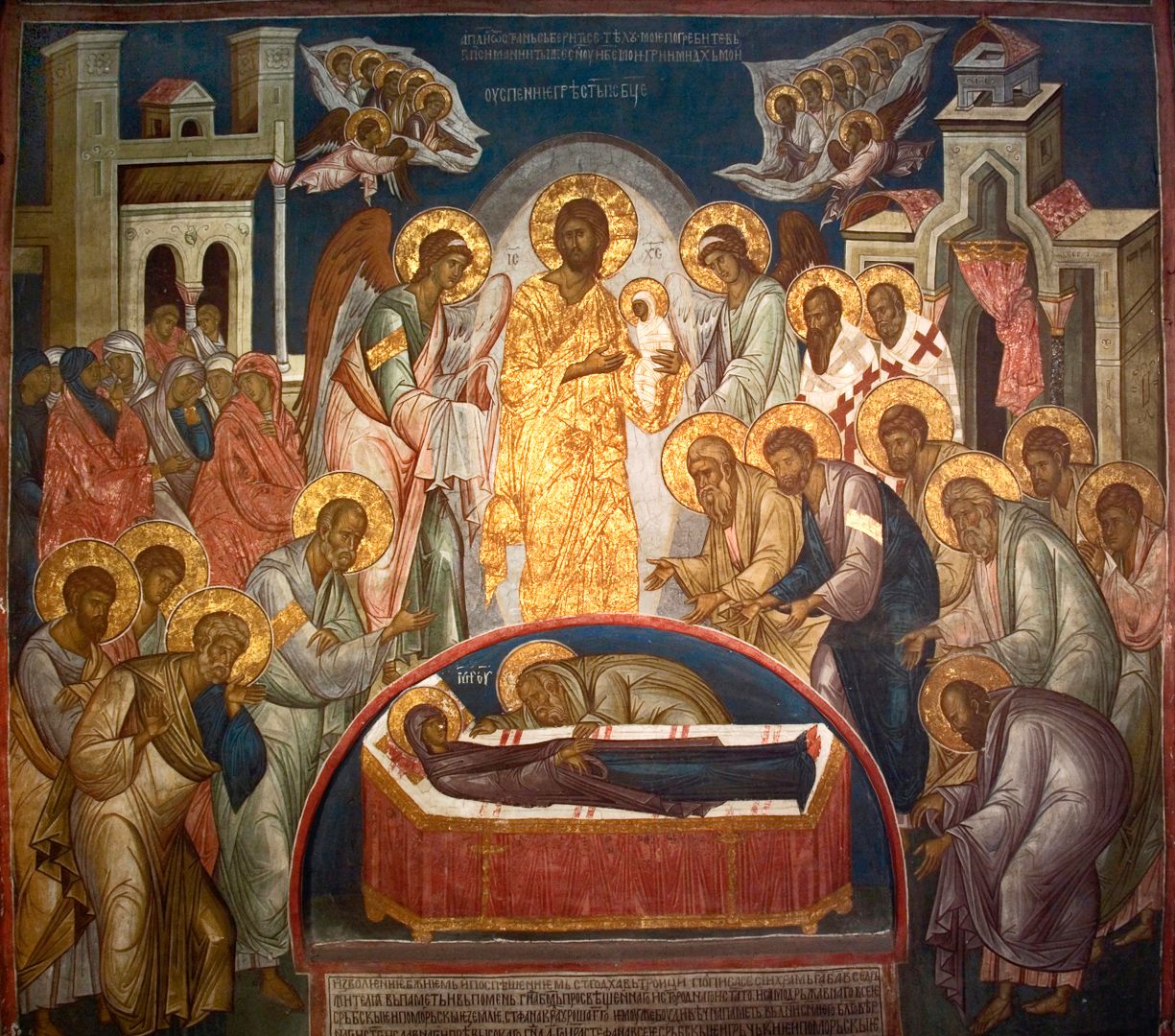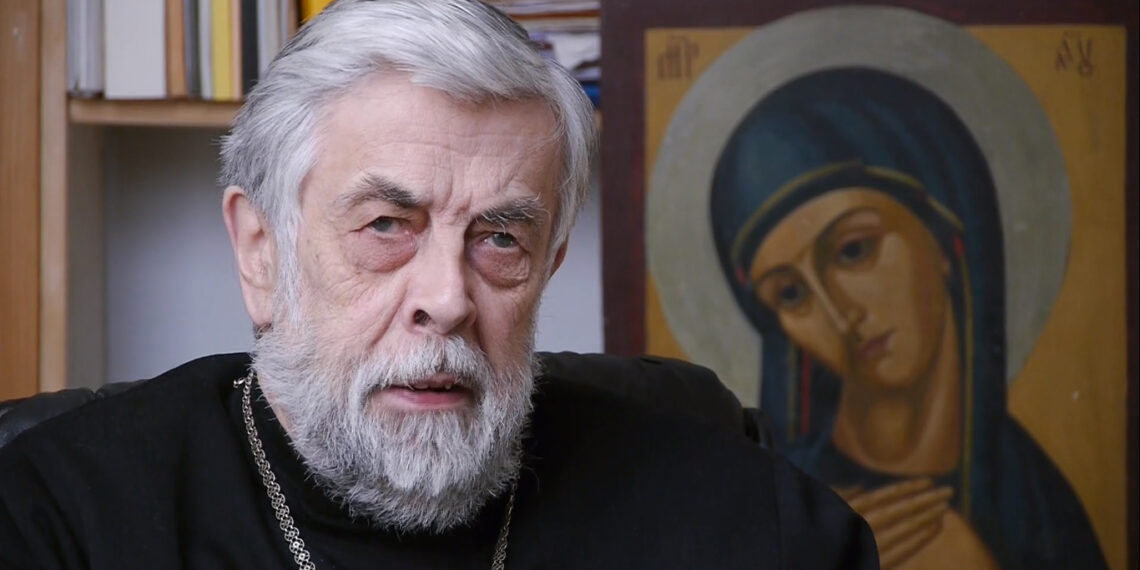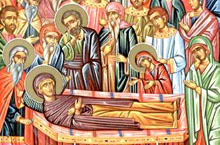Science
The Dormition Fast
14. August 2020 - 12:46 The Dormition fast was established as preceding the great feasts of the Transfiguration of the Lord and of the Dormition of the Mother of God. It lasts two weeks—from August 1/14–August 14/27 (old style/new style).
The Dormition fast was established as preceding the great feasts of the Transfiguration of the Lord and of the Dormition of the Mother of God. It lasts two weeks—from August 1/14–August 14/27 (old style/new style).
The Dormition fast comes down to us from the early days of Christianity. We find a clear reference to the Dormition fast in a conversation of Leo the Great from around the year 450 A.D. “The Church fasts are situated in the year in such a way that a special abstinence is prescribed for each time. Thus, for spring there is the spring fast ]—the Forty Days[Great Lent; for summer there is the summer fast… [the Apostles’ fast]; for autumn there is the autumn fast, in the seventh month [Dormition fast]; for winter there is the winter fast [Nativity fast].”
Eminent theologian Father Boris Bobrinskoy passed away
8. August 2020 - 13:51 One of the most prominent Orthodox theologians in the West, Father Boris Bobrinskoy, passed away yesterday, August 6, 2020. He was born in Paris on February 25, 1925, to Russian parents who immigrated to France after the 1917 Russian Revolution. He studied in an orthodox environment in Paris, but also in Catholic and Protestant Theological Departments. His theological thought was influenced by Father George Florovsky, Father Nikolay Afanasiev, Father Alexander Smeman, Father Cyprian Kern and Vladimir Losky.
One of the most prominent Orthodox theologians in the West, Father Boris Bobrinskoy, passed away yesterday, August 6, 2020. He was born in Paris on February 25, 1925, to Russian parents who immigrated to France after the 1917 Russian Revolution. He studied in an orthodox environment in Paris, but also in Catholic and Protestant Theological Departments. His theological thought was influenced by Father George Florovsky, Father Nikolay Afanasiev, Father Alexander Smeman, Father Cyprian Kern and Vladimir Losky.
Saint Anna, Mother of the All-holy Theotokos
5. August 2020 - 14:51 Today is the commemoration of the falling asleep of St. Anna, but her principal feast is celebrated on September 9, on which date her life is written. Anna was from the tribe of Levi, and was the daughter of Mat- than the priest.
Today is the commemoration of the falling asleep of St. Anna, but her principal feast is celebrated on September 9, on which date her life is written. Anna was from the tribe of Levi, and was the daughter of Mat- than the priest.
After a long and God-pleasing life, she died in extreme old age.
How to read the Bible and Why
27. July 2020 - 16:22by Archimandrite Justin Popovich
The Bible is in a sense a biography of God in this world. In it the Indescribable One has in a sense described Himself.
The Holy Scriptures of the New Testament are a biography of the incarnate God in this world. In them it is related to how God, in order to reveal Himself to men, sent God the Logos, who took on flesh and became man--and as a man told men everything that God is, everything that God wants from this world and the people in it.
Orthodox Catechesis for People in Prison
18. July 2020 - 0:49By Zossima Daugherty
Before offering some thoughts on how OCPM conducts catechesis for people in prison I would like to take the opportunity to recognize those Orthodox clergy and laity who work tirelessly where they are able to help our brothers and sisters who are incarcerated. Despite their sacrifices there is still a difficulty which must be faced: the largest numbers of Orthodox Christians in parts of the United States where people in prison tend to be the fewest while those places with the largest numbers of people incarcerated tend to be in places where Orthodox Christians are fewest in numbers. It is out of these latter areas that OCPM receives the greatest number of inquiries about Orthodox Christianity. Many of these people are either requesting to be catechized or will end up asking to be taught the faith. How do we as OCPM respond to these requests for teaching?
Primarily, catechesis is done by OCPM through a series of studies and personal correspondence. The personal correspondence allows for answering specific questions by the student which needs a fuller explanation than our materials offer. Besides this personal correspondence we offer a 6-part study series of which the first 4 studies contain questions to help guide the student through the material. The six-part series is as follows:
Part 1: A Seeker of Truth, Saint Hilary of Poitiers
Part 2: The Preaching of the Apostles, Saint Irenaeus
Part 3: Orthodox Christian Catechism
Part 4: A Treatise to Prove That No One Can Harm the Man Who Does Not Injure Himself
Part 5: Orthodox Faith (4 vol. set)
Part 6: Challenges of Orthodox Thought and Life
Part 1 is a basic introduction to Trinitarian theology done through a study of the journey of St. Hilary of Poitiers (4th century) to Orthodox Christianity. Part 2 is a study of the 2nd century writing by St. Irenaeus, The Preaching of the Apostles, which is just what the name states: a presentation of the content of the Christian Faith handed down from the Apostles. Part 3 is an actual Orthodox Catechism which includes a study guide to help the student better understand the Catechism material. Each of these first three courses contain the answer key for the lessons in the back of the study guide so the student can grade their own work.
First, it is a somewhat novel experience for someone in prison to be trusted to do the right thing; however, this approach minimizes postage cost for the student as well as simplifying the process. Part 4 is a treatise by St. John Chrysostom which serves a two-fold purpose: to help the student begin applying the Faith in their own life as well as teaching the student how to stop being a victim and take control of their own life. Part 5 is “the Rainbow Set” done by Fr. Thomas Hopko of blessed memory and provides a fuller description of the history, worship, and spirituality of Orthodox Christianity. Part 6 rounds out the studies by showing the student some of the challenges they will likely face as an Orthodox Christian.
For those people who are in a prison or jail where there are no Orthodox services or classes being offered by an Orthodox priest or volunteer, they can write to OCPM and we can provide them with our free study courses as well as the guidance we offer through corresponding with them.
Many ask us about the impact this sort of spiritual support by correspondence can have on people who participate. Perhaps the best repsonse to this question is to offer (anonymously) the content of a recent letter to OCPM:
When I first started my Christian walk, I was searching for faith, any faith. I thought I could wrestle my own understanding from the Bible through numerous, mostly Protestant, Bible studies, on my own. Until I found Orthodoxy, I was on a holy quest, but I was under my own sinful power and authority. I was trying to discover the holy and divine message of the Bible without the Church and community that received the Bible through the Holy Spirit. Thank you for helping me to find the true Church. When I parole in 2021, I will find an Orthodox parish church to continue my Christian journey. I have finally found what I have been searching for my entire life. Thank you so very much.
This fellow has gone through our 6-part study series while regularly corresponding with OCPM all of which helped bring him to this point in his life.
While face to face contact is a necessity at some point in their journey home, correspondence can help them a good distance down the road. Consider the New Testament as an example of the effectiveness of correspondence: virtually all of the writings are letters of a sort to a particular person or church. The Gospel of Luke was written as a form of catechesis for Theophilus (Luke 1:3, 4) . . . “it seemed fitting for me as well having investigated everything carefully from the beginning, to write it out for you in consecutive order, most excellent Theophilus; so that you might know the exact truth about the things you have been taught [Gk. κατηχήθης]. Even correspondence ministry has an integral place in the teaching ministry of the Church in helping to guide people home to the Kingdom of God.
Liquid Chips, 5G Towers and the Mark of Antichrist. The Perspective of a Priest and Physicist
10. July 2020 - 15:34 Before becoming a priest, I graduated from the Department of Experimental and Theoretical Physics of the Moscow Institute of Engineering and Physics, so I will try to explain the ideas behind the liquid chips and 5G towers, first from the technical and then from the spiritual standpoint.
Before becoming a priest, I graduated from the Department of Experimental and Theoretical Physics of the Moscow Institute of Engineering and Physics, so I will try to explain the ideas behind the liquid chips and 5G towers, first from the technical and then from the spiritual standpoint.

